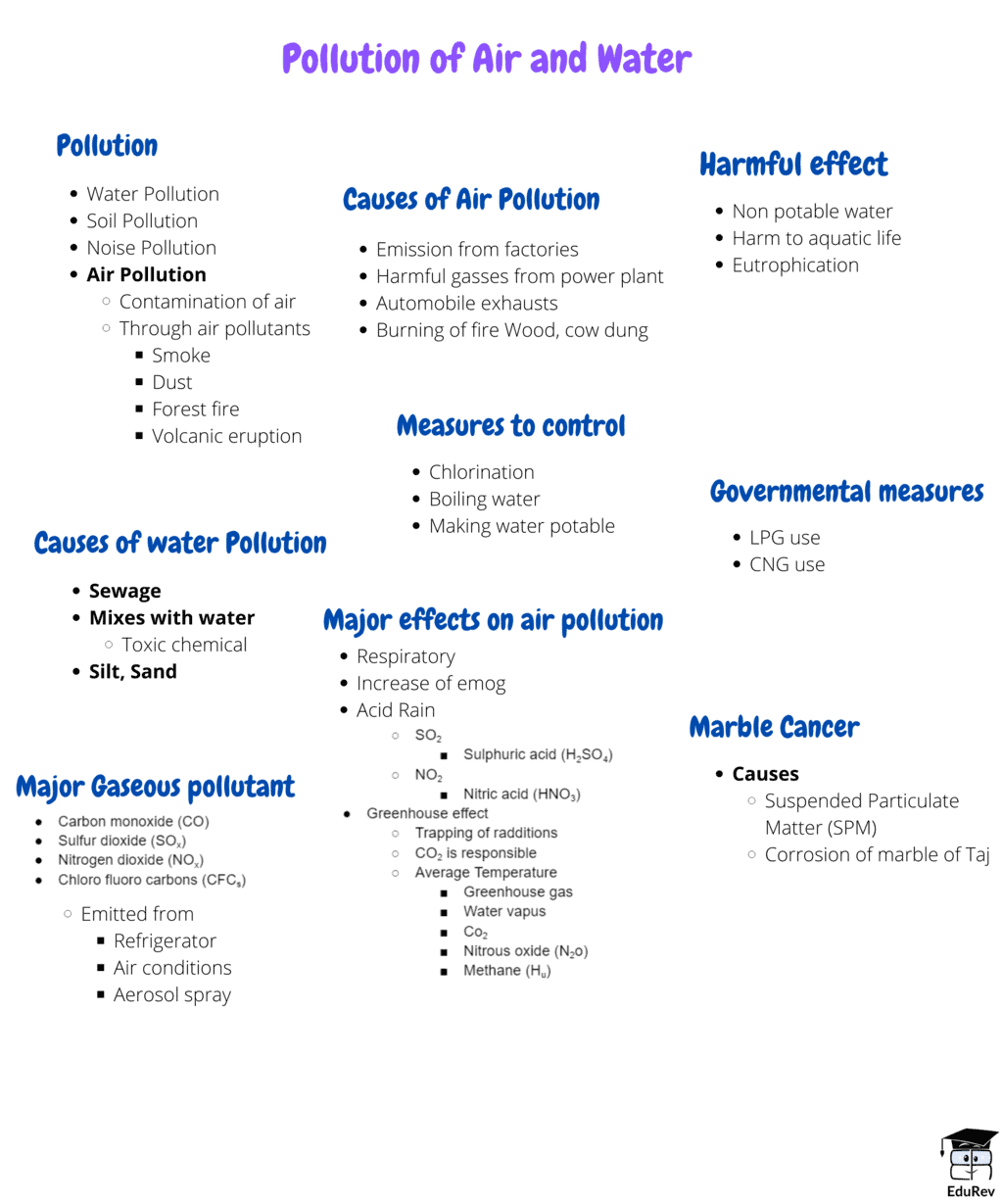UPSC Exam > UPSC Notes > Class 6 to 12 NCERT Mindmaps for UPSC Preparation > Mindmap: Pollution of Air and Water
Mindmap: Pollution of Air and Water | Class 6 to 12 NCERT Mindmaps for UPSC Preparation PDF Download

The document Mindmap: Pollution of Air and Water | Class 6 to 12 NCERT Mindmaps for UPSC Preparation is a part of the UPSC Course Class 6 to 12 NCERT Mindmaps for UPSC Preparation.
All you need of UPSC at this link: UPSC
FAQs on Mindmap: Pollution of Air and Water - Class 6 to 12 NCERT Mindmaps for UPSC Preparation
| 1. What are the main sources of air pollution? |  |
Ans. The main sources of air pollution include industrial emissions, vehicle exhaust, burning of fossil fuels, agricultural activities, and waste disposal.
| 2. How does air pollution affect human health? |  |
Ans. Air pollution can have various adverse effects on human health. It can cause respiratory problems, such as asthma and bronchitis, and can also lead to cardiovascular diseases. Prolonged exposure to air pollution can increase the risk of lung cancer and other respiratory illnesses.
| 3. What are the consequences of water pollution? |  |
Ans. Water pollution can have severe consequences for aquatic life and human health. It can lead to the death of fish and other aquatic organisms, disrupt ecosystems, and contaminate drinking water sources. Consuming polluted water can cause gastrointestinal diseases, skin infections, and other health issues.
| 4. How can we reduce air pollution? |  |
Ans. There are several ways to reduce air pollution. We can promote the use of clean energy sources such as solar and wind power, improve fuel efficiency in vehicles, encourage public transportation, and implement stricter regulations on industrial emissions. Planting trees and creating green spaces also help in mitigating air pollution.
| 5. What measures can be taken to prevent water pollution? |  |
Ans. To prevent water pollution, it is important to properly treat and dispose of wastewater. Implementing strict regulations on industrial waste discharge and agricultural runoff is crucial. Educating the public on responsible waste management practices, such as recycling and proper disposal of household chemicals, can also contribute to preventing water pollution.
Related Searches


















